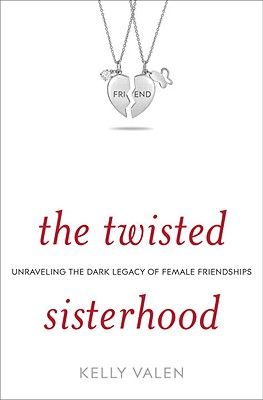“My life’s greatest sorrow stems from my inability to feel close to other women.” This is the first sentence from Piedmont author Kelly Valen’s New York Times article from which her new book The Twisted Sisterhood: Unraveling the Dark Legacy of Female Friendship stemmed. It’s been years since the sorority experience that soured Valen on female friendships, but the pain is still fresh. A pain that Valen found she shares with many women.
“Ninety-seven percent of women I surveyed believe that the female culture needs an overhaul,” said Valen. Read more about the “mean girl” phenomenon below as we talked to Valen about how her essay turned into a book, and what we can do to save future generations of women from getting hurt.
What inspired you to continue the exploration of female friendships from your NY Times essay to a full-on book?
It was a completely accidental book. The NY Times article was the easiest thing I’ve ever written. It just flowed out of me. Then I received emails from hundreds of women commiserating about their hurt from other women, and the long lasting marks from it. They wanted to stay in touch and continue talking.
Almost like a support group?
Yes exactly. But it wasn’t until a friend’s niece committed suicide, and it was linked to online harassment that I thought, I am sitting on all these stories and I see what all this negativity is doing to people. So I wrote a survey with my very smart, scientific friend and posted it on SurveyMonkey.com. I received so many responses I had to cut it off around 3020 because it was becoming unmanageable.
Was there ever a point where people (men or women) you told the "mean girl" phenomenon about just dismissed it?
Umm, everyday! After the article I received a lot of backlash in the blogosphere, which I was not prepared for. People saying I was just shilling for a book, or that mine is not the average female experience. I love to hear that these women have confidence and strong female bonds, but just because it hasn’t happened to you doesn’t mean it isn’t happening, or couldn’t happen to your daughters. Especially in today’s social networking climate and with so many gay suicides tied to online bullying, I don’t see how anyone can ignore how timely this topic is.
Have there been any experiences in that time that might have changed your mind about females?
There has! I mean, are all of my relationships perfect now? No. But I’ve seen how much pain can be caused by a snide comment or small bit of gossip and it’s made me try harder to be a better friend and to be more aware in my relationships.
Is the “mean girl” attitude a generational thing?
Some of the most interesting and heartbreaking stories I collected were from elderly women in nursing homes like, “I was the girl from the wrong side of the tracks with thick ankles.” Some of these women admitted to never having a truly close friend.
I also received a lot of responses from women in academia and other competitive professional fields. They said how therapeutic it was just to have a forum to talk openly about the pain from conniving in their workplace. This seemed ironic to me because the law firm I worked for in San Francisco is where I finally began opening up to other women.
How can mothers prepare their daughters to deal with the “mean girl” phenomenon? How can we stop it from continuing?
It’s hard. I don’t want to taint my girls’ relationships. Like all mothers, I want them to engage and form healthy friendships with other girls. But I encourage all parents to pay attention to their girls’ games, look for exclusionary tactics or a group mentality, and call your own girls out for bullying behavior.
Role modeling is huge. Children see if you are insincere or gossiping, they especially pick-up on social rewards or bonding that comes from your behavior. Our relationships are guidelines for their relationships.
Check out Kelly Valen's book at your favorite local San Francisco Bookstore.
Related Articles
